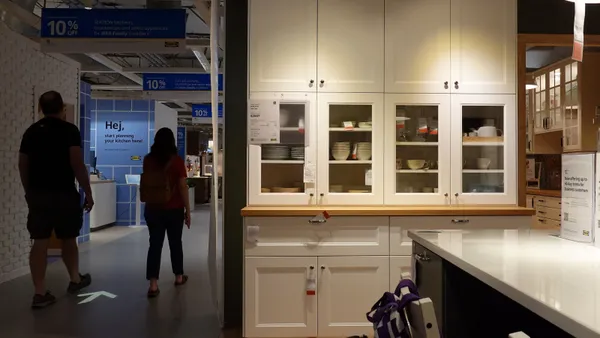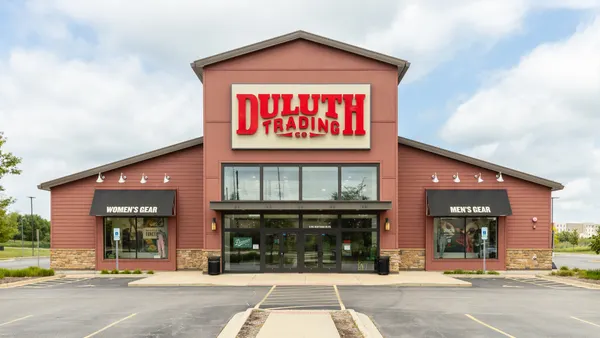Dive Brief:
- Cronos GrowCo, a joint venture between cannabis company Cronos and a group of investors, is building an 850,000-square-foot greenhouse in Ontario that will produce up to 70,000 kilograms (154,323 pounds) of cannabis each year, Cronos CEO Mike Gorenstein told analysts on a company earnings call Tuesday.
- Gorenstein expects the greenhouse to become operational in 2020. The facility will support growing demand for cannabis after the substance was legalized in Canada last October.
- Two of Cronos' recreational brands, COVE and Spinach, currently "are distributed in Ontario, British Colombia, Nova Scotia, Prince Edward Island and Saskatchewan," Gorenstein said. "As our production capacity grows, we intend to expand distribution into additional Canadian provinces and territories."
Dive Insight:
Canada's move to legalize cannabis on Oct. 17, 2018 created an opportunity but also a conundrum for producers in the industry: How will they rapidly increase supply to keep pace with an impending spike in demand?
The first logical solution was to build up capacity for production. Cronos has 355,500 square feet of existing capacity in Canada in the form of greenhouses and indoor farms. These facilities produce an estimated 40,150 kilograms of cannabis annually. Cronos' new greenhouse will expand its footprint with an additional 850,000 square feet of space and boost production by 70,000 kilograms.
Inventories of cannabis supply and sales of the products in Canada have grown by hundreds of kilograms since legalization in October.
Creating supply is only the first step on the journey to developing a robust cannabis supply chain to meet demand.
"I think when we think of capacity, there is really two ways to look at it," Gorenstein said on the call. "So, the first is cultivation capacity, and then the second is really the downstream processing, packaging and other parts of the supply chain."
In addition to capacity, distribution, brands and intellectual property are the other pillars of Cronos' strategy, according to an investor presentation from December 2018.
The company plans to expand distribution to more Canadian provinces as it scales up capacity. "But, each time you add a province, you're adding complications to the other parts of the supply chain. You have to multiply your set of [SKUs] each time you add a province because of the tax stamps," he said.
Canadian federal law requires all cannabis products legally produced and available for purchase to have an excise stamp, and each province has its own stamp. "Provinces and territories are responsible for determining how cannabis is distributed and sold within their jurisdictions," the government said on its website.
The varying regulations challenge companies like Cronos as it looks to expand distribution to additional provinces. "Making sure that we can manage the downstream logistics is really the biggest factor," Gorenstein said.
Cronos sees Canada as a launching pad for the company, which is seeking a global presence. Cronos is breaking ground on greenhouses in other parts of the world and expanding its international distribution.
"When we think about Canada, the value that we see is having the opportunity to develop the processes and products that ultimately will be spread globally," Gorenstein said. "At this stage of our business, we are very cognizant of this delicate balance while our supply ramps to meet the growing demands of our global distribution."














